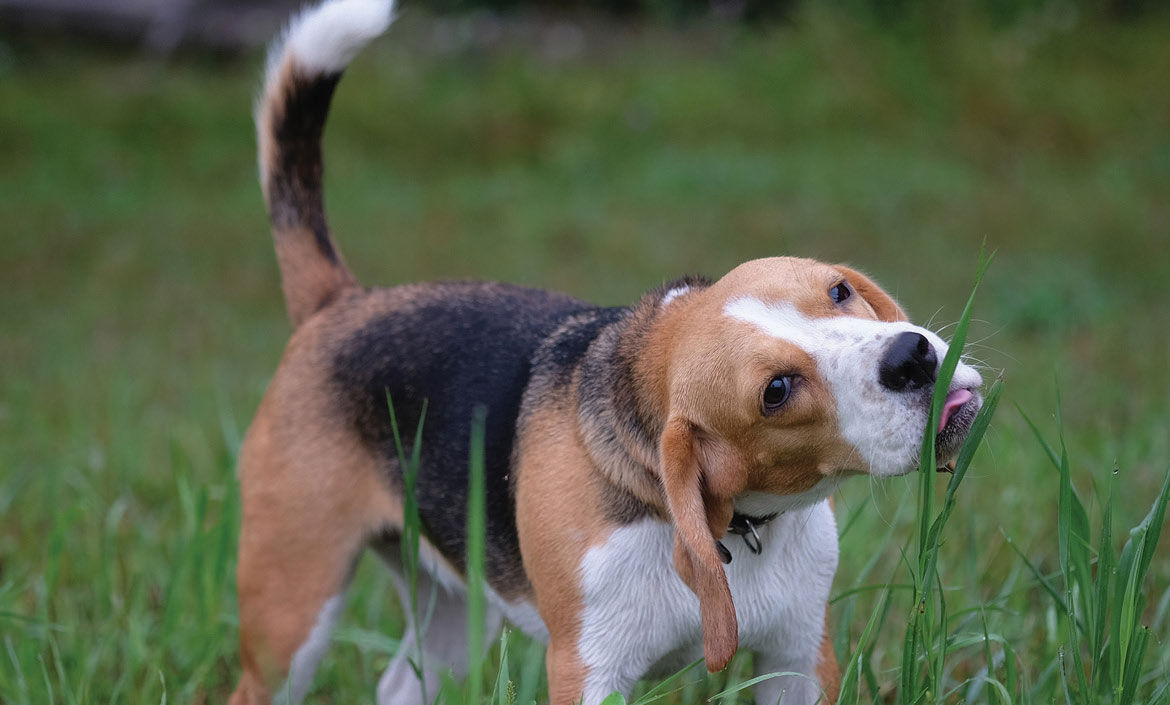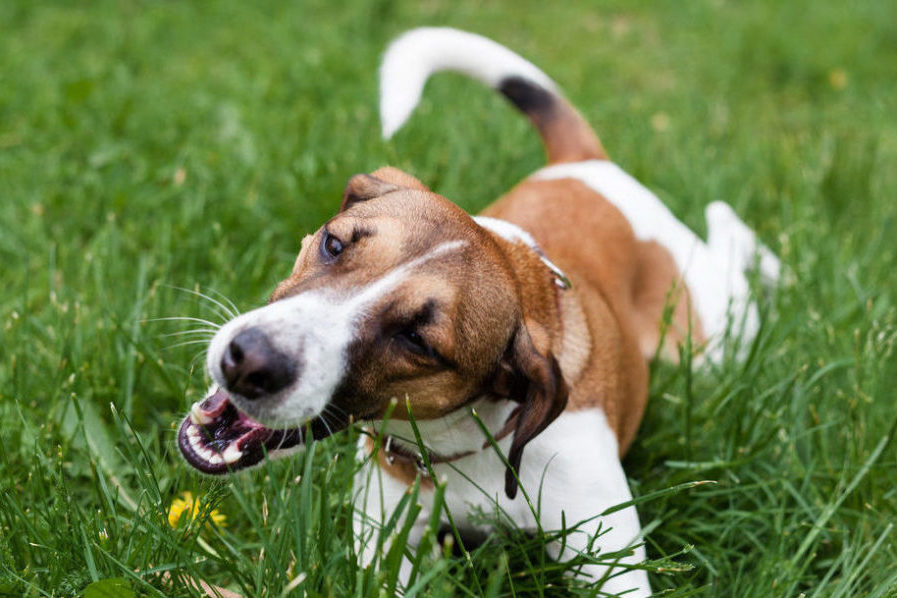There is a common question amongst dog owners about why a dog would eat grass. Your dog might be fed a very specific diet and get groomed on a regular basis, but at the end of the day a dog will always be a dog. No matter what your lifestyle is, and the intensity of your dog’s training, there are some things about your dog’s instinct that you just cannot alter.

Oftentimes, these instincts include things as mundane as nibbling on grass. But, is it healthy for the dog to eat grass?
Overall it has been confirmed that there is nothing to worry about as most grass is determined to be safe enough for dogs. In fact, there are some theories saying that dogs need to eat grass to make up for a certain deficiency in their diet. Then again, even if you feed your dog the healthiest of diets, there is something about grass that he craves. You may actually find out more about your dog’s intolerances through a Dog Allergy Test at companies like EasyDNA, a top world-leading company in the field of animal and DNA testing.
Why does my dog eat grass?
The simple answer to this simple question is this: it is probable that your dog likes the taste of grass. You might wonder why a dog eats grass if it is not beneficial or necessary but think again. People, after all, love eating junk food and drinking cola even though these are extremely unhealthy. Similarly, we can assume that your dog could be eating grass as a delicious treat.
Some dogs puke after eating it and researchers are still trying to find the answer and are still in the process of understanding whether the grass is the real culprit behind a dog’s indigestion or not.
There is another theory that might explain this seemingly bizarre behaviour. According to Andrea Rediger, who writes for the Purdue University College of Veterinary Medicine, it is possible that undomesticated dogs are omnivores and not carnivores as previously thought. This explains why domesticated dogs have the natural instinct to eat grass.
Some also speculate that dogs in the wild would eat the grass that had been ingested by their prey, resulting in canine species being accustomed to the taste of grass.
How plausible are these speculations? The truth is dogs, as a species, is one of the most successful opportunistic scavengers, and it has remained this way for tens of thousands of years. We might assume that dogs are natural carnivores, but their scavenging way means they can essentially eat anything that fulfills their dietary requirements. In fact, there are wild canids that routinely eat grass as part of their diet.

Some websites, like Petmd.com, suggest that dogs eat grass to relieve an upset or gassy stomach. According to these sources, the grass would tickle the dog’s throat and stomach lining, causing them to puke and vomit out acid in their gut. However, as these are still unproven theories, you should not just let your dog eat grass as a cure to an ailment. There is no sufficient evidence proving that grass, indeed, cures a dog’s upset stomach.
But Andrea Rediger claims that there might not be a connection between grass-eating and vomiting. If your dog pukes after eating grass, monitor him carefully because it is entirely possible that an underlying medical condition is the cause.
It is best to take him to a veterinarian so that they can perform various tests on your dog and ensure that your dog is truly healthy. Take him to the vet right away if he experiences any of these symptoms: lethargy, diarrhea, and severe weight loss due to constant vomiting.
Your veterinarian may perform physical, fecal, and blood tests to confirm if your dog has gastrointestinal problems. They may also conduct a blood count to test your dog’s blood flow, ensuring that there is no blood loss or inflammation. It is also helpful to have your pet undergo a chemistry panel checkup to monitor his liver and pancreas health, eliminating the possibility of GI disease.
Is grass dangerous for my dog?
Normally, grass does not pose any risk for a healthy dog. One thing about dogs is you can just let them do their own thing without worry. But it works for both your and your dog’s best interest if you continue to monitor and observe him. Take note if your dog suddenly eats more grass because that could be a sign of an underlying health condition.
If you have a teething puppy, never let them nibble on grass without supervision. He can chew on grass to relieve teething pain, but he should not actually ingest the grass because it can result in gastrointestinal blockage.
If you are looking for a great alternative to grass, it may help to give your dog a diet with natural herbs and plants to curb the addiction. You may also set aside a small tray of grass for your dog to help limit the amount of grass he eats. Carefully choosing the grass that your dog can eat may even save him from possibly ingesting insects, pesticides, and harmful chemicals.
